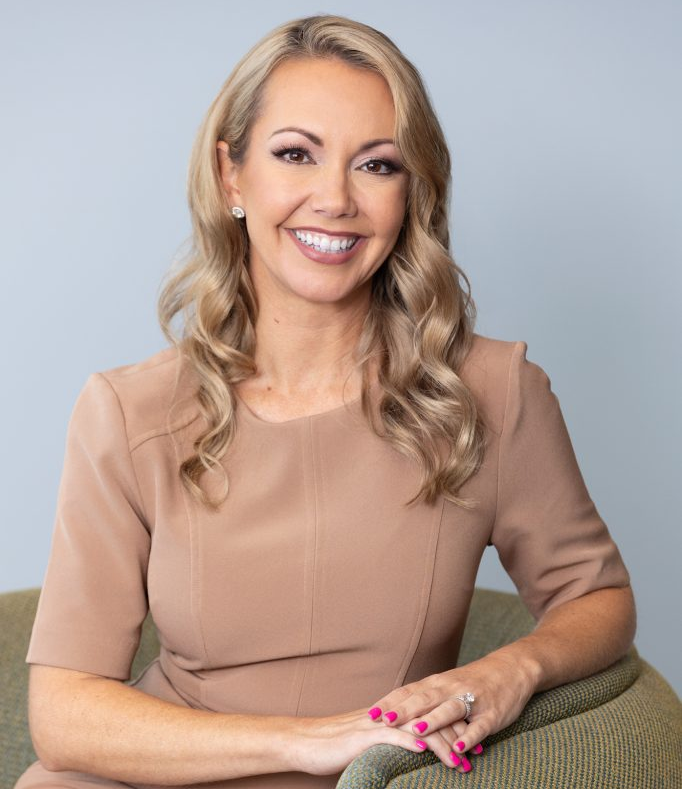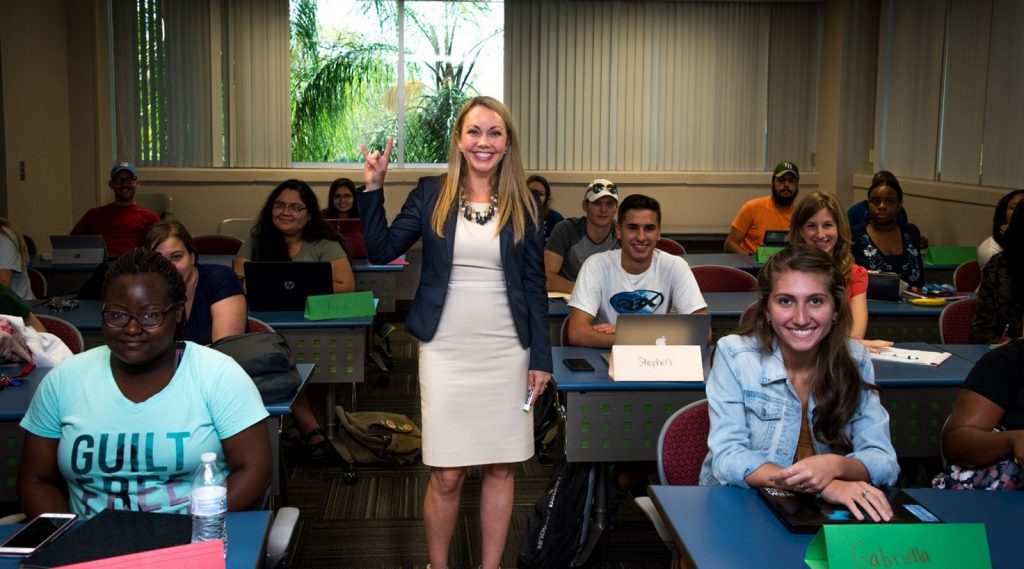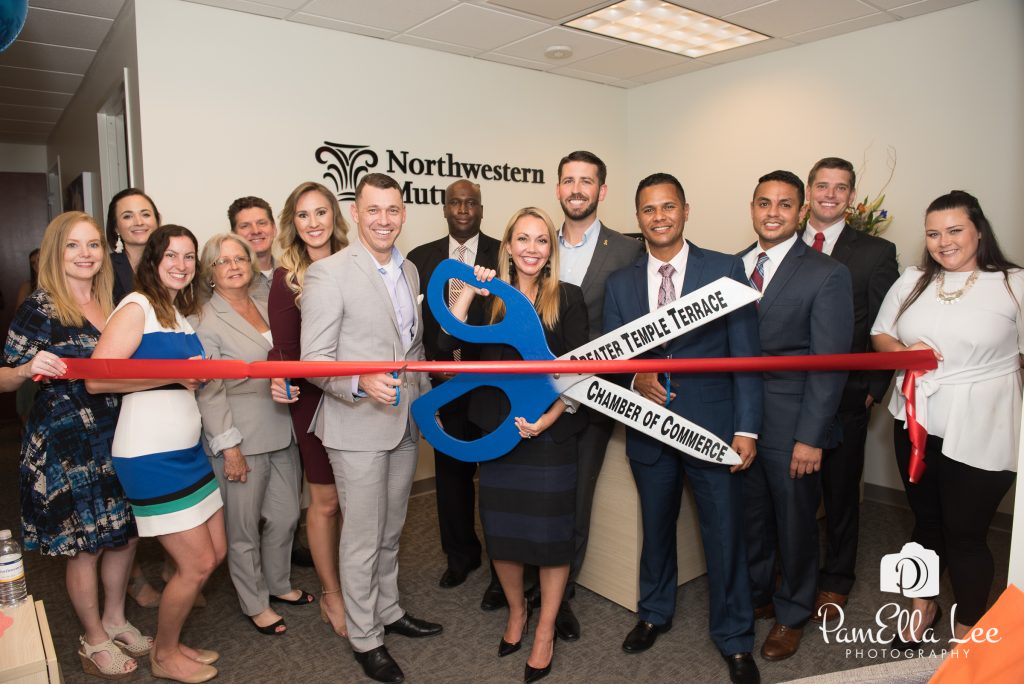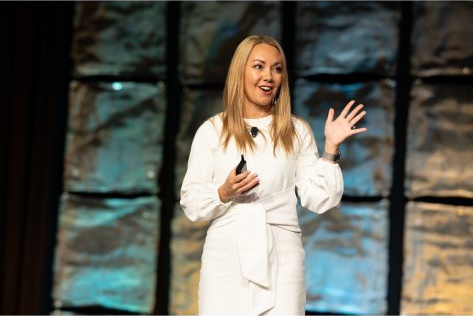When opposite career paths attract
Born in Los Angeles, College of Public Health (COPH) alum Nicole Stokes Zolkos grew up in Tampa since she was 3 years old and calls herself a “Tampanian.”

“Both of my parents taught at USF. My dad was head of jazz studies and my bonus mom is a psychology professor, but I started my undergrad at Florida State University,” Stokes Zolkos said.
By the end of her junior year she had transferred to USF, eventually earning her B.A. in psychology from the university in 2003. She then then worked part-time at Northside Mental Health, serving the chronically mentally ill.
What led Stokes Zolkos to apply for a master’s program in public health was her own chronic illness.
“I have Crohn’s disease,” she said. “I’m always curious about how people navigate chronic illness and the decisions they make to manage that illness while living full lives. That’s why I chose public health.”
While taking classes, Stokes Zolkos worked full-time during the day and said developing relationships with her professors helped her tremendously.
“I’ve had many who invested time in me like Dr. Rita DeBate, a COPH professor who specializes in mental health issues, as well as Natalie Preston, director of the Office of Engagement and Constituent Relations, who helped me feel connected,” she said.
Stokes Zolkos graduated with her MPH in 2007 and was introduced to the public health workforce through what is now called Frameworks of Tampa Bay, an organization dedicated to promoting social and emotional development for youth age 8-18.
“We worked with mostly middle school aged children on things like emotional intelligence, how to handle conflict in safe ways, how to talk about relationships, healthy eating and what choices to make around drug or alcohol use,” she said.
Stokes Zolkos said the work mirrored her psychology roots but also connected with public health and the behavioral change model.
“It really was a nice marriage,” she said. “Then I rose in the organization to be VP of program operations and eventually acting executive director. I was with that organization for 10 years.”
Then, Stokes Zolkos said she got really sick again.
“This was during the 2008-2009 market crash so our funding was impacted,” she commented, “I had a lot of stress, which triggered a problem with my chronic illness and I ended up needing a bowel resection surgery.”
It was during that recovery time that Stokes Zolkos realized she needed to figure out something different for her life, and a friend suggested financial planning. At first, she thought it was a crazy idea, but ultimately found that the career could check a lot of boxes for what she wanted to achieve. So, she took the leap.
“I got the education I needed, which added a bunch of fancy letters behind my name, and I started my own financial planning practice in 2011,” she said. “In total, I earned eight different licenses so that I could advocate for my clients in the most informed way.”

“What I realized is I’m still doing public health work today,” Stokes Zolkos said. “The question the students always ask is, ‘How is financial planning considered public health?”
The answer, she said, is simple.
“When you look at the number-one public health issue today, it is stress,” Stokes Zolkos said. “The number-one stressor is money. People think and worry about money constantly. You worry if you have enough, or you worry if you have so much and what to do with taxes. Everyone is worried about money.”
Stokes Zolkos found an unlikely comparison when explaining the marriage of public health and financial planning.
“I always compare financial planning to smoking,” she said. “People know of the health risks, yet some still choose to smoke. People know there will come a time when they will need to retire, for example. Yet there’s still a disconnect of positive decision-making. I utilize the same behavioral change model that we use to get people to stop smoking as to save money or to make better decisions with their money like retirement saving options. “I am still using what I have learned from my masters of public health every single day to help reduce people’s stress,” she said.

Now a mom of five, Stokes Zolkos is a wealth management advisor and managing director for Northwestern Mutual.
“I own two financial planning companies and now help train, develop and attract new talent. That’s why I was eligible for the Fast 56 award for a third year in a row because it’s a business that is Bull owned and led,” she said.
The USF Fast 56 Awards, now in its 11th year, recognizes the 56 fastest-growing Bull-led businesses.

“We have a Clearwater location and our newest location in Tampa has one of the top-10 internship programs in the nation,” Stokes Zolkos added. “We always love having USF students and would like to see public health student applications.”
Since graduating, Stokes Zolkos has been able to stay plugged in as an alum. She sat on the advisory board for the COPH and attends USF’s annual Green and Gold Gala fundraiser event.
“I see the COPH rocking and rolling and getting awards, which makes me proud,” she said. “I see growth with alumni communication- the alumni newsletter, alumni email updates and the event posts in Facebook and LinkedIn. I see the college working to engage people earlier on to keep people connected to the university, which is really cool.”
Fast Five
What did you dream of becoming when you were young?
I wanted to be a doctor at Doctors Without Borders. Then I realized there’s no way I can ever see that much blood, ever.
Where would we find you on the weekends?
At a soccer game or Girl Scout meeting or anywhere outdoors with my kids.
What is the last book that you read?
What I’m reading right now is “Born to Shine.” by Kendra Scott.
What superpower would you like to have?
A shape shifter. You could be the president one second, signing an order in to place. The next second you could encourage your child’s best friend, giving them advice or courage. There’s so many things you could do.
What is your all-time favorite movie?
The one I can watch over and over again and never get bored of is “Love, Actually.”
Story by: Liz Bannon, College of Public Health

